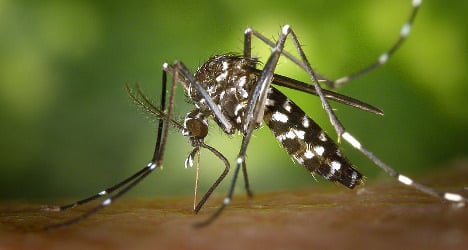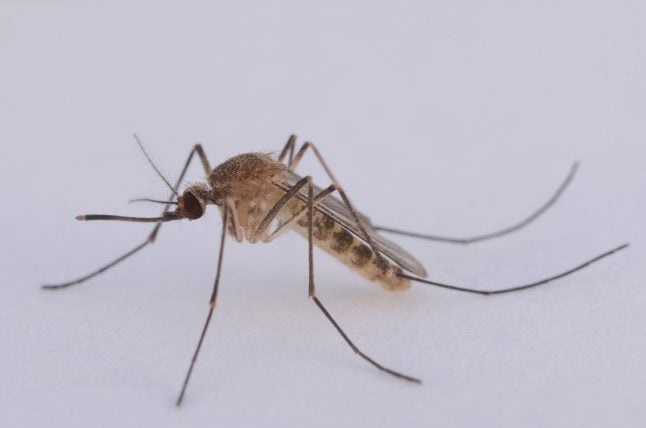Concern is growing in the south of France this summer over the heightened threat of a repeat of the 2010 outbreak of the chikungunya virus, which is spread by mosquitos.
Until recently the disease only affected France’s overseas territories in the Caribbean and the Indian Ocean, but health officials revealed earlier this month that there have been 47 newly diagnosed cases in mainland France, Sud-Ouest newspaper revealed.
(The threat of chikungunya in France this summer" reads the headline in Sud-Ouest)

All of the patients were infected with the illness on a trip abroad to the French islands of Martinique and Guadaloupe, where an epidemic since the beginning of the year has resulted in 13 deaths.
But with French tourists heading to and from the Caribbean this summer there are fears that it won't be long before France has its first “native” cases. Some reports claim the risk is also heightened by the fact many football supporters will soon return from the tropical parts of Brazil, where the World Cup is taking place.
What increases the risk of the virus being spread in France is that the disease-carrying tiger mosquito is now well and truly settled in the south of the country.
Tiger mosquitos, which also carry dengue fever, have now made home in at least 17 departments in the south of France, according to French daily Le Parisien. That number went up from just nine in 2012 and it will continue to colonise new ground.
In May concerned French health authorities activated their plan of action against the spread of the tiger mosquito.
The action involves keeping a close watch on mosquito populations, as well as those infected by diseases and a major effort to wipe out the tiger mosquitos from certain areas.
Health authorities have also issued advice to those who are travelling to the French territories hit by the epidemic of chikungunya.
That guidance basically goes along the lines of cover up either with clothes or mosquito repellent.
Symptoms of chikungunya include a high fever, intense muscle aches and joint pains and a severe headache. Other symptoms mentioned online by French health authorities include nausea and skin rashes. Only in extreme cases will the disease result in death.
The incubation period can be between two and ten days.
The disease is spread when a mosquito bites a patient infected with the virus and then goes on to bite others.
This is what happened in 2010 when authorities were forced to deal with an outbreak of chikungunya in the Provence – Côte d'Azur region.
Residents in the south of the country are asked to be vigilant and take simple steps to avoid infestation by a creature that lays 250 eggs every two days.
“It’s important to get rid of stagnant water around the house,” the Direction générale de la santé (Directorate General for Health) said in a statement.
“Replace saucers from under flowerpots, change the water in vases several times each week, check that gutters are clear, and get rid of used tires,” the directorate added.



 Please whitelist us to continue reading.
Please whitelist us to continue reading.
Member comments